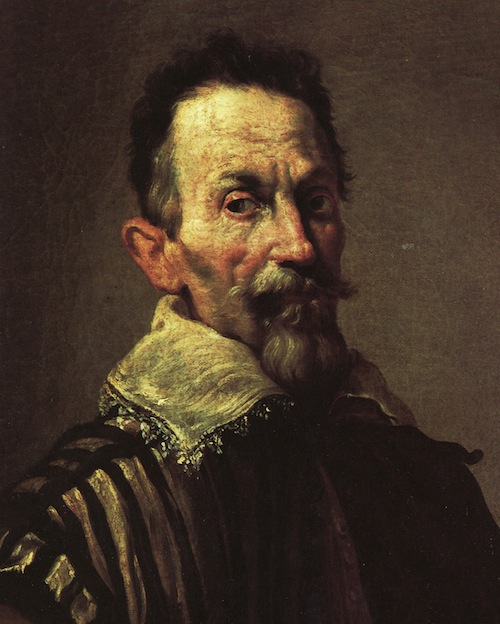NEC Opera offers an energetic and updated “Poppea”

New England Conservatory Opera performed Monteverdi’s “L’incoronazione di Poppea” Saturday night at the Cutler Majestic Theatre.
As Nerone took Poppea in his arms and filled her face with gentle kisses, it looked as though the evening would have a storybook ending.
But (to reverse the old idiom) bedfellows make strange politics. The guy-gets-the-girl narrative of Monteverdi’s L’incoronazione di Poppea, which opened Saturday night at the Cutler Majestic Theatre in a slick production by the New England Conservatory Opera, is less a fairy tale than a story of raw power and ambition.
Monteverdi’s last and greatest opera, based on historical events, tells a vexing story where moral virtues are punished while lust masquerades as love and greed wins the day. The tyrannical Roman Emperor Nerone wishes to leave his wife, Ottavia, and marry Poppea, his social-climbing concubine. Those who stand in the way of the Emperor’s plans—like the cunning Ottone and upstanding Seneca—are banished or killed. With the dissenters out of the picture, Poppea is crowned the new Empress of Rome.
NEC’s production featured an energetic staging by veteran director Steven Goldstein. The always-on-the-go flow and sexually suggestive scenes made for engaging theatre, a change from the park-and-bark style so common in productions of early opera.
Simple props of plastic-backed chairs and an office desk gave the set a clean, modern appearance. The backdrop resembled a Roman temple standing in the distance, yet the spaces between its columns looked like the tall windows in a commercial office building.
As for the costumes, business attire for Nerone, Ottone, and Ottavia added to the production’s corporate look. Poppea was clothed in a clean white dress, which gave her ambitious character the veneer of innocence.
Others drew upon familiar archetypes. Nerone’s henchmen were clad in 1930s gangster wear, complete with bowler hats and pistols. The horn-rimmed glasses, bow-tie, and tweed jacket made Seneca look more like Poindexter than a great philosopher and statesman.
The greatest oddity was the outfit for Amore (Love), the most headstrong of the gods. With flannel shirt, brown trousers, and pigtails, the character seemed less at home as Cupid than she would have been as a farm girl on Walton’s mountain.
But it was the expressive music that underscored the opera’s dramatic irony. Even after three hundred years, the chromatic shades that infest the gentle flow of Monteverdi’s vocal lines can be both surprising and affecting.
With Joseph Mechavich conducting from the harpsichord, the seventeen-member orchestra gave lift to the lilting, meter-shifting phrases that permeates this score. Mechavich supplied gentle harpsichord accompaniment over cellist Zhou Li’s bass lines to match the ever-spinning strands of recitative. In a few places orchestra and singers struggled to find the conductor’s tempo, and the music threatened to fall apart at the seams. A few forceful gestures fixed those issues, and the musicians, overall, gave a sensitive and fine-tuned performance.
The cast of singers ranged from capable to excellent. As the cunning Nerone, tenor James Dornier sang with a light, lyrical tone. Soprano Yujin Kim’s graceful stage presence made for a coquettish Poppea. Both singers grew into their roles as the opera progressed. In the first half, the lower range of Kim’s shiny voice was sometimes lost beneath the gentle waves of Monteverdi’s orchestral writing, and Dornier seemed more comfortable in the shorter, stately phrases than in the florid passages. By the second half, their voices loosened up, and the burbling melismas of their duets had greater clarity.
Vincent Turregano brought a milky baritone to the role of the jealous Ottone, a man who rebounds to the selfless Drusilla, performed by Rebekah Holland, after Poppea rejects his advances. Jessica Harika’s reedy voice made for a comical Arnalta, Poppea’s maid. The gods, Nataly Wickham (Fortuna), Emily Jensen (Virtú), and Clara Reitz (Amore), sang nimbly in the Prologue.
Among the standouts was Josh Quinn, who sang with a resonant bass that gave emotional gravity to the stoic Seneca. His suicide scene that closed the first half was haunting and heartbreaking. And as the scorned Ottavia, Sadie Gregg’s amber-toned mezzo-soprano sounded strong across her full range.
L’incoronazione di Poppea will repeat 3 p.m. Sunday and at 7:30 p.m. Monday and Tuesday at Cutler Majestic Theatre. necmusic.edu
Posted in Performances




